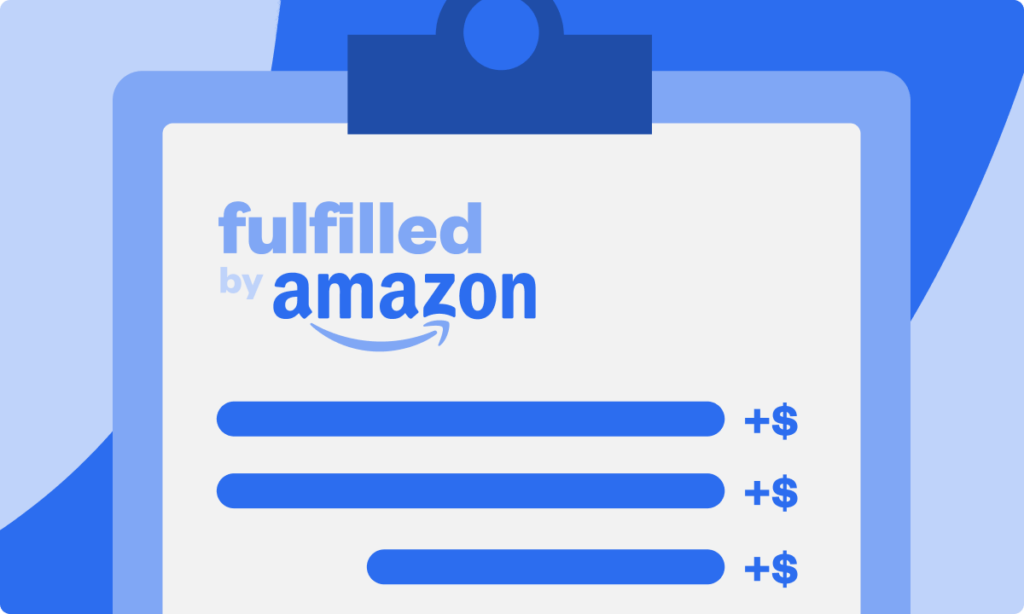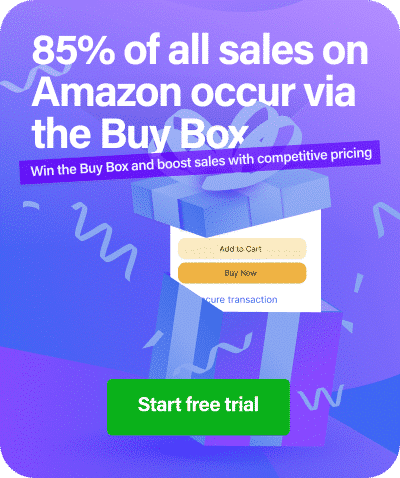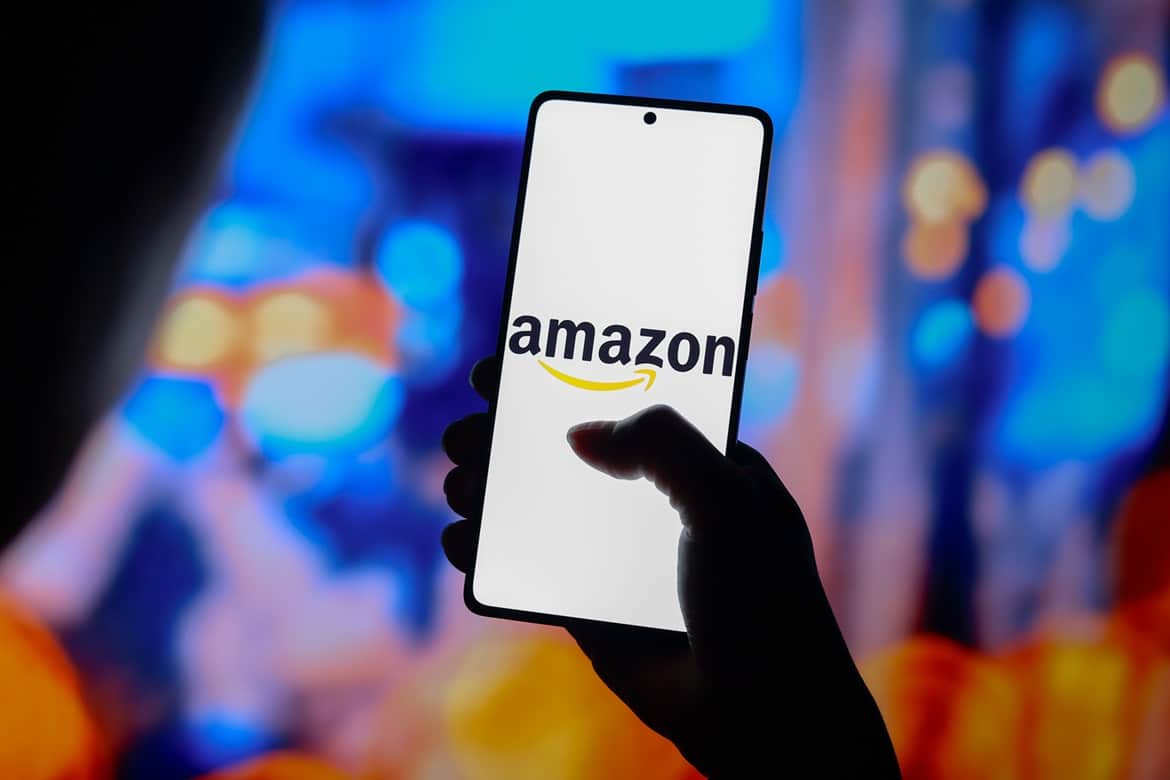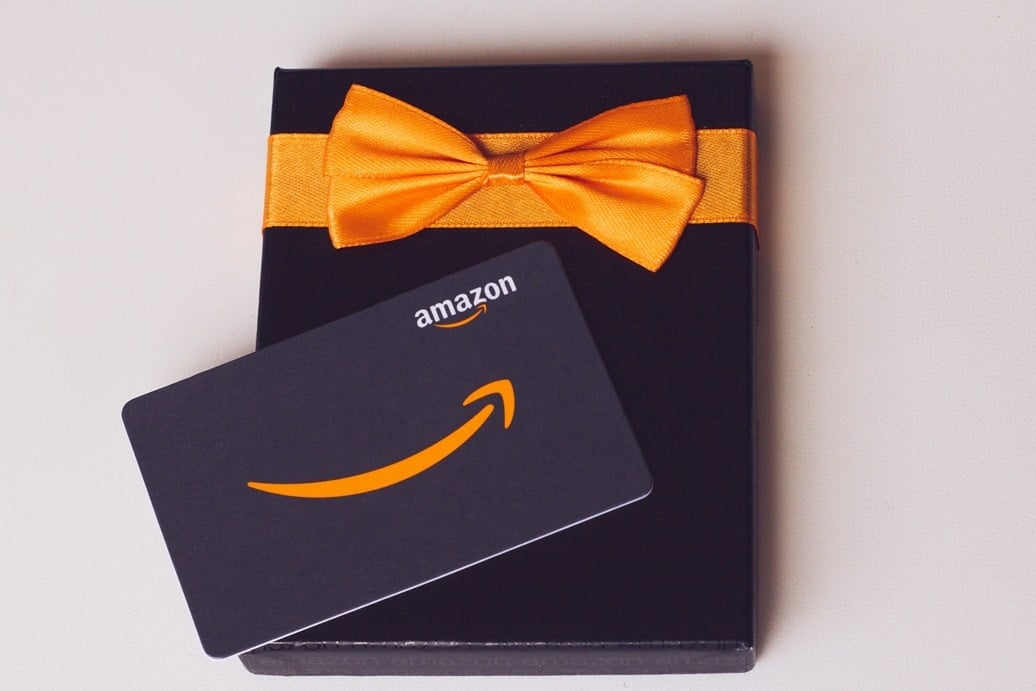In 2024, Amazon’s market growth hit an impressive 11.7% year-on-year, reinforcing its position as the leading eCommerce marketplace. This growth has been fueled in part by Amazon’s constant enhancements to its platform and services.
However, any changes Amazon makes naturally impact sellers on the marketplace. To help you adapt to the updates Amazon has made so far this year, we’ve outlined the most significant ones and what they mean for your business.

Fee adjustments and changes
Fulfilled by Amazon (FBA) fee changes
In April, Amazon cut some FBA fees and raised others. Fees for standard-size products (think of a standard paperback book) went down by $0.20 per unit, and for large, bulky-size products (like a coffee table) by $0.61 per unit.
However, Amazon’s inbound placement fee, which covers the cost of distributing and storing products across fulfillment centers, went up by $0.27 per unit for standard-size products and $1.58 per unit for large bulky-size products.

While sellers were understandably hoping the reduction would offset the increase, that’s not quite the case. In conversation with Fortune, one seller, Judah Bergman, CEO of Jool Baby, expressed confusion about the increases: “I’m very experienced on Amazon and I’ve spent so much time on this, but for many items, I still don’t have clarity on how exactly I’m going to sell profitably.”
Speaking on previous fee changes, Dharmesh Mehta, VP of Worldwide Selling Partner Services at Amazon justified the changes by saying, “A fee change like this allows us to more closely align fees for sellers with our underlying costs and also provide sellers with more choices for how they use our services.”
Though FBA costs more in 2024 than in previous years, sellers still prioritize the service. It means faster delivery times and improves customer satisfaction, potentially leading to better reviews and higher Amazon Buy Box Algorithm rankings.
Low inventory fees
Also in April, Amazon started charging sellers who consistently had low inventory levels when compared to the consumer demand for the same products. However, Amazon introduced this change with a grace period that let sellers improve their Amazon Account Health before facing a penalty, ultimately refunding any charges during a two-week period.
That said, they haven’t scrapped the charge entirely. In May, they introduced a few caveats to prevent sellers being unfairly affected by the low inventory fee. Sellers now won’t be charged on products that sell less than 20 units per week, when processing is delayed by Amazon, or during Prime Day events.
Monthly storage fee adjustments
Another change Amazon made earlier this year to prompt better stock availability was a marginal reduction in monthly storage fees. These fees were reduced by $0.09 per cubic foot for standard-size products, but remained unchanged for large bulky-size products.
Aged inventory surcharges
Prior to 2024, Amazon charged long-term storage fees on inventory stored longer than 181 days. This year, they increased the charge for anything stored between 271 to 365 days. This charge now ranges from $5.45 per cubic foot to $6.90 and above, whereas the lower limit in that range used to be $3.80. Perhaps a steep increase, but one that can certainly smooth supply chains.
Program and policy updates
Amazon launched the SIPP program in 2024. This initiative aims to improve their environmental impact and is available to sellers that sell into Canada, the United States, Italy, Spain, Germany, the United Kingdom, and France.
SIPP stands for Ships in Product Packaging and involves, as the name suggests, shipping products in the original manufacturer’s packaging instead of an additional shipping box. The idea is that this greatly reduces the amount of waste material resulting from shipping.

But there are a few things sellers should consider before enrolling in the program. The original packaging has to be robust enough to protect its contents. It also has to be safe to handle if it contains very large or very small items. Plus, it has to reflect your brand image, and still look good after all the jostling it’ll get during the shipping process.
According to Amazon, sellers can receive discounts on fulfillment from $0.04 to $1.32 per unit, depending on the product size and weight. Products smaller than 6 x 4 x 0.375 inches, as well as dangerous goods and extra-large items, do not qualify for SIPP discounts.
Tech enhancements
Increased adoption of AI

In March, Amazon revealed the latest upgrade to their AI tools—the ability to use generative AI to produce an Amazon listing from an existing Amazon product URL. This greatly reduces the time sellers need to invest to create captivating images and text to accompany their products.
Looking to the future, Amazon announced a $25 million, 10-year deal with NVIDIA to further their machine learning innovation. For sellers, this could spell vast improvements in everything from pricing optimization to inventory management and customer engagement. This initiative may also lead to more sophisticated seller support services and improved marketplace competitiveness.
Expansion of advertising tools
Initially available for Sponsored Brands, AI image generation was expanded for use by Sponsored Display advertisers. This allows sellers to create high-quality ad visuals more efficiently, enhancing their ad campaigns across multiple regions.
The numbers do the talking here. On average, advertisers selling in the US who use Sponsored Display branded creative see a 13.6% higher return on ad spend, 31.7% higher conversion rate, and 8.4% more new-to-brand sales compared to those using non-custom creative. So, anything that makes it easier for sellers to publish this type of content is likely to help optimize performance.
Looking forward
That’s a lot of updates, and we’re not even at Prime Day yet. The pace Amazon keeps up as they release new features, improvements, and innovations is just one reason buyers flock to the platform each year. As sellers, pivoting your strategies to work within the platform is a challenge but, by mastering it, you set yourself up for strong long-term eCommerce success.
Automate your pricing to stay in line with future updates from Amazon using smart solutions from Repricer. Learn more about how to optimize your pricing strategy in light of Amazon Policy Changes and manage your Amazon Seller Fees effectively to maintain your Amazon Prime Eligibility.





